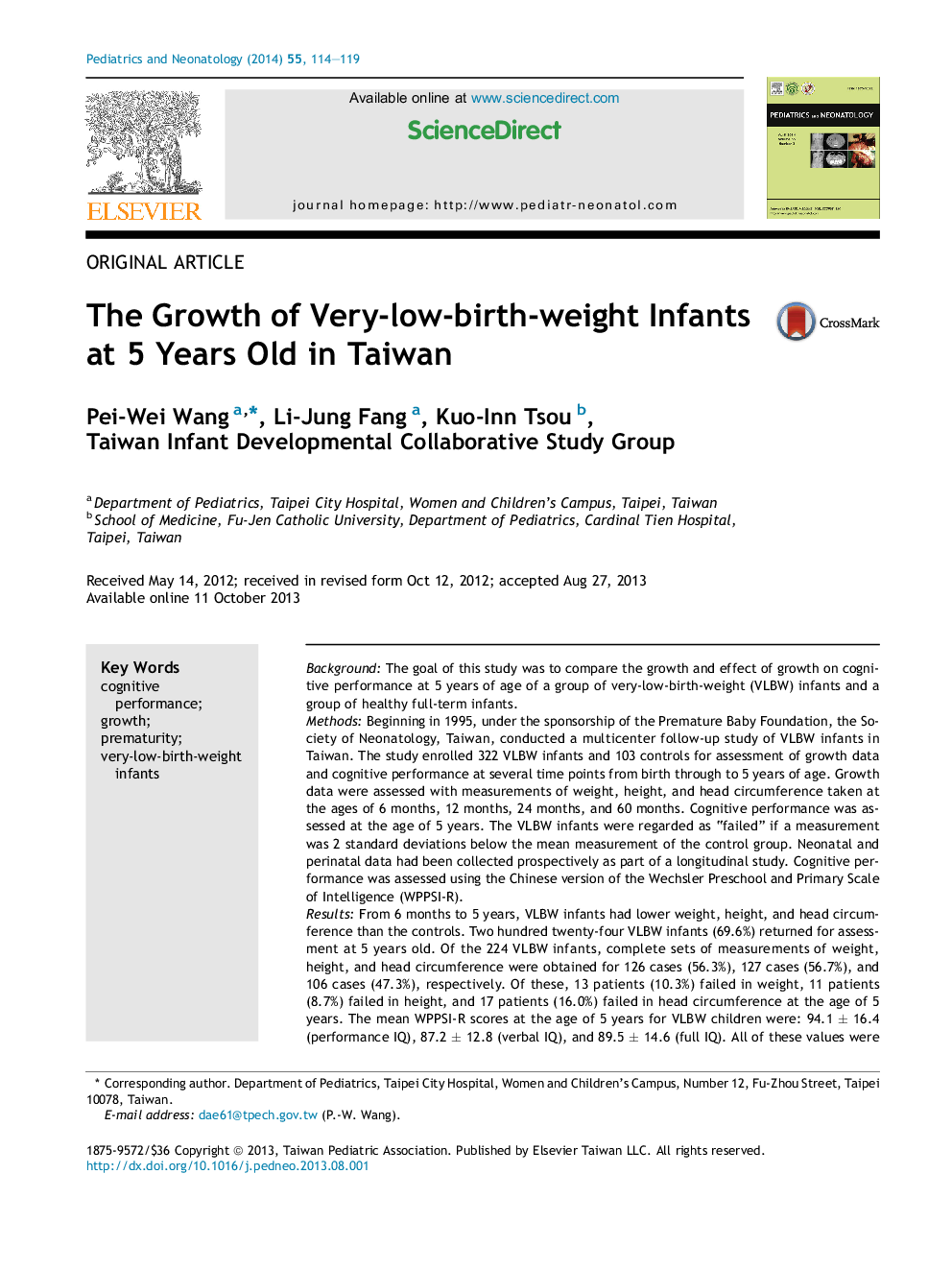| کد مقاله | کد نشریه | سال انتشار | مقاله انگلیسی | نسخه تمام متن |
|---|---|---|---|---|
| 4175335 | 1276184 | 2014 | 6 صفحه PDF | دانلود رایگان |
BackgroundThe goal of this study was to compare the growth and effect of growth on cognitive performance at 5 years of age of a group of very-low-birth-weight (VLBW) infants and a group of healthy full-term infants.MethodsBeginning in 1995, under the sponsorship of the Premature Baby Foundation, the Society of Neonatology, Taiwan, conducted a multicenter follow-up study of VLBW infants in Taiwan. The study enrolled 322 VLBW infants and 103 controls for assessment of growth data and cognitive performance at several time points from birth through to 5 years of age. Growth data were assessed with measurements of weight, height, and head circumference taken at the ages of 6 months, 12 months, 24 months, and 60 months. Cognitive performance was assessed at the age of 5 years. The VLBW infants were regarded as “failed” if a measurement was 2 standard deviations below the mean measurement of the control group. Neonatal and perinatal data had been collected prospectively as part of a longitudinal study. Cognitive performance was assessed using the Chinese version of the Wechsler Preschool and Primary Scale of Intelligence (WPPSI-R).ResultsFrom 6 months to 5 years, VLBW infants had lower weight, height, and head circumference than the controls. Two hundred twenty-four VLBW infants (69.6%) returned for assessment at 5 years old. Of the 224 VLBW infants, complete sets of measurements of weight, height, and head circumference were obtained for 126 cases (56.3%), 127 cases (56.7%), and 106 cases (47.3%), respectively. Of these, 13 patients (10.3%) failed in weight, 11 patients (8.7%) failed in height, and 17 patients (16.0%) failed in head circumference at the age of 5 years. The mean WPPSI-R scores at the age of 5 years for VLBW children were: 94.1 ± 16.4 (performance IQ), 87.2 ± 12.8 (verbal IQ), and 89.5 ± 14.6 (full IQ). All of these values were also lower than those of the control group, with the differences being statistically significant (p < 0.05). The WPPSI-R scores of VLBW children who failed in head circumference were notably lower than those of VLBW children whose head circumference had caught up with that of their peers.ConclusionThe growth of VLBW infants was lower than that of healthy full-term infants through 5 years of age. The cognitive performance for VLBW children was also decreased compared to that of the control group, and there was an association between slower growth and decreased cognitive ability.
Journal: Pediatrics & Neonatology - Volume 55, Issue 2, April 2014, Pages 114–119
